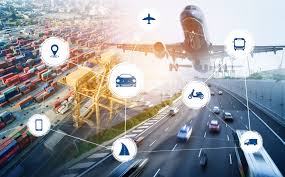AI in Transportation Market: Revolutionizing Mobility and Logistics
The integration of Artificial Intelligence (AI) into the transportation sector is revolutionizing how we perceive and interact with mobility and logistics. As AI technology advances, it plays an increasingly pivotal role in enhancing safety, efficiency, and sustainability across various transportation modes. This article delves into the AI in transportation market, exploring its overview, key segments, latest industry news, prominent companies, market drivers, and regional insights.
Market Overview
The AI in transportation market is experiencing rapid growth, driven by the increasing demand for automated and intelligent transportation solutions. AI technologies, such as machine learning, computer vision, and natural language processing, are being harnessed to develop smarter transportation systems. These systems aim to optimize traffic management, improve vehicle safety, enhance passenger experiences, and streamline logistics operations.
The AI in Transportation market industry is projected to grow from USD 2745.6 Million in 2024 to USD 6118.7 million by 2032, exhibiting a compound annual growth rate (CAGR) of 10.54% during the forecast period (2024 - 2032).
Request To Free Sample of This Strategic Report - https://www.marketresearchfuture.com/sample_request/6673
Key Market Segments
The AI in transportation market can be segmented based on application, technology, mode of transportation, and region.
By Application:
Autonomous Driving: AI enables self-driving vehicles by processing vast amounts of data from sensors, cameras, and GPS to navigate and make decisions.
Traffic Management: AI systems optimize traffic flow, reduce congestion, and improve road safety through real-time data analysis and predictive analytics.
Predictive Maintenance: AI-driven predictive maintenance helps in anticipating and addressing vehicle issues before they lead to breakdowns, reducing downtime and maintenance costs.
Logistics and Supply Chain Management: AI optimizes routing, inventory management, and demand forecasting, enhancing efficiency in logistics operations.
- By Technology:
Machine Learning: Machine learning algorithms improve vehicle performance, fuel efficiency, and safety by learning from historical data.
Computer Vision: This technology enables vehicles to understand and interpret their surroundings through visual data from cameras and sensors.
Natural Language Processing (NLP): NLP facilitates better human-machine interaction, enabling voice-activated controls and customer service chatbots.
- By Mode of Transportation:
Road Transportation: Includes self-driving cars, trucks, and public transit systems.
Rail Transportation: AI applications in railways enhance scheduling, safety, and predictive maintenance.
Air Transportation: AI improves air traffic management, predictive maintenance, and customer service in the aviation sector.
Marine Transportation: AI optimizes navigation, logistics, and safety in the maritime industry.
- By Region:
North America: A major market driven by advancements in autonomous vehicles and robust technological infrastructure.
Europe: Focuses on sustainable and efficient transportation solutions with strong government support.
Asia-Pacific: Rapid urbanization and growing investments in smart city projects are propelling market growth.
Rest of the World: Includes emerging markets with increasing adoption of AI technologies in transportation.
Industry Latest News
The AI in transportation sector is buzzing with innovation and strategic collaborations:
Tesla's Full Self-Driving (FSD) Beta: Tesla has been making headlines with its FSD Beta program, aiming to bring fully autonomous driving to its electric vehicles. The company is continuously improving its AI algorithms through real-world data collection and analysis.
Waymo and Daimler Collaboration: Waymo, a subsidiary of Alphabet Inc., has partnered with Daimler to integrate its autonomous driving technology into Daimler's trucks, aiming to enhance long-haul freight transport efficiency and safety.
Uber's AI Labs: Uber is leveraging AI to enhance its ride-hailing services and develop autonomous driving technology. The company is focusing on improving route optimization, safety, and customer experience.
AI-Powered Traffic Management in Singapore: Singapore is implementing AI-driven traffic management systems to alleviate congestion and improve urban mobility. These systems use real-time data and predictive analytics to optimize traffic flow.
Key Companies
Several key players are driving innovation and growth in the AI in transportation market:
Tesla, Inc.: A leader in electric vehicles and autonomous driving technology, Tesla is at the forefront of integrating AI into transportation.
Waymo LLC: A pioneer in autonomous driving, Waymo is developing AI-driven solutions for various transportation modes, including ride-hailing and freight transport.NVIDIA
Corporation: Known for its AI hardware and software, NVIDIA provides critical components for developing autonomous vehicles and intelligent transportation systems.
Uber Technologies Inc.: Uber is heavily investing in AI to enhance its ride-sharing services and develop autonomous driving technology.
Intel Corporation: Through its subsidiary Mobileye, Intel is advancing AI-based safety and autonomous driving solutions.
Daimler AG: Partnering with tech companies like Waymo, Daimler is integrating AI into its commercial vehicle operations to enhance efficiency and safety.
Market Drivers
Several factors are driving the growth of the AI in transportation market:
Safety Improvements: AI enhances vehicle safety by enabling advanced driver-assistance systems (ADAS) and autonomous driving, significantly reducing the risk of accidents caused by human error.
Efficiency and Cost Reduction: AI optimizes routes, reduces fuel consumption, and improves vehicle maintenance schedules, leading to significant cost savings for businesses and consumers.
Government Initiatives and Regulations: Governments worldwide are promoting the adoption of AI in transportation through funding, policy support, and regulations aimed at improving safety and sustainability.
Consumer Demand for Convenience: Increasing consumer demand for convenience and seamless mobility solutions is pushing companies to adopt AI technologies to enhance user experiences.
Technological Advancements: Rapid advancements in AI technologies, including machine learning and computer vision, are enabling more sophisticated and reliable transportation solutions.
Ask for Customization - https://www.marketresearchfuture.com/ask_for_customize/6673
Regional Insights
North America
North America, particularly the United States, is a leader in the AI in transportation market. The region's strong technological infrastructure, significant investments in autonomous vehicles, and supportive regulatory environment contribute to its dominance. Companies like Tesla and Waymo are spearheading innovations, making North America a hub for AI-driven transportation solutions.
Europe
Europe is focusing on sustainable and efficient transportation solutions, with significant investments in smart cities and green mobility. Countries like Germany and the United Kingdom are at the forefront, promoting the adoption of AI technologies in public transport and logistics to reduce carbon emissions and improve urban mobility.
Asia-Pacific
The Asia-Pacific region is witnessing rapid growth in the AI in transportation market, driven by urbanization, rising disposable incomes, and government initiatives supporting smart city projects. China, Japan, and South Korea are key players, with substantial investments in autonomous vehicles, intelligent traffic management systems, and AI-based logistics solutions.
Rest of the World
Emerging markets in Latin America, the Middle East, and Africa are gradually adopting AI technologies in transportation. These regions are benefiting from technological transfers and investments from global players, improving their transportation infrastructure and efficiency.
Conclusion
The AI in transportation market is poised for significant growth, driven by advancements in technology, increasing consumer demand for convenience, and government support for sustainable and safe transportation solutions. As key players continue to innovate and collaborate, the future of transportation promises to be more intelligent, efficient, and connected. Embracing AI in transportation not only enhances safety and efficiency but also paves the way for a more sustainable and convenient mobility experience for all.
AI in Transportation Market Highlights:



